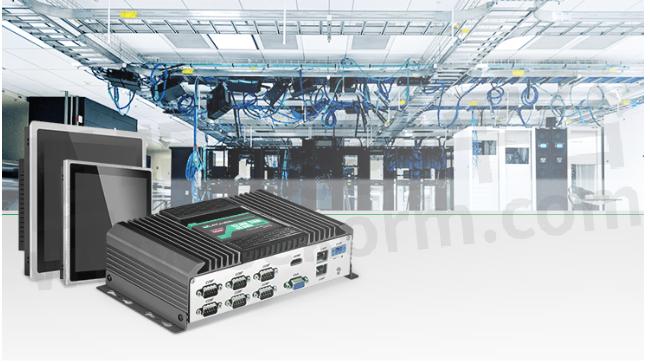A Comprehensive Guide to Lithium Ion UPS: Unveiling the Power Behind Backup Systems

Uninterruptible Power Supplies (UPS) play a crucial role in safeguarding electronic devices and critical systems from power disruptions. Traditionally, lead-acid batteries have been the go-to choice for UPS systems, but recent advancements in battery technology have introduced Lithium-ion batteries as a viable alternative. In this comprehensive guide, we delve into various aspects of Lithium Ion UPS, addressing common questions and considerations.

Fig.1
Can Lithium Ion Batteries Be Used in UPS?
Lithium-ion batteries can indeed be used in Uninterruptible Power Supply (UPS) systems. In recent years, there has been a growing trend toward adopting lithium-ion technology in UPS applications. UPS lithium batteries offer several advantages over traditional lead-acid batteries. Their high energy density, lightweight nature, and longer cycle life make lithium Ion UPS battery a viable and attractive option for backup power solutions.
Why Are Lithium Batteries Not Widely Used in UPS?
Recently, the use of lithium batteries in UPS systems has been steadily increasing, but certain factors have historically limited their widespread adoption. It's important to note that the landscape of technology and industry practices may have evolved since then.
Here are some reasons why lithium batteries might not have been widely used in UPS systems:
◆Initial Cost: Lithium-ion batteries tend to have a higher upfront cost compared to traditional lead-acid batteries. This initial cost has been a significant factor in the decision-making process, especially in applications where cost considerations play a crucial role.
◆Risk Perception: The safety concerns associated with lithium-ion batteries, including the potential for thermal runaway and fire hazards, have influenced the perception of risk in certain industries. This has led some businesses to remain conservative in their choice of battery technology.
◆Compatibility and Retrofitting: Many existing UPS systems are designed and optimized for lead-acid batteries. Retrofitting these systems to accommodate lithium-ion batteries may require additional investments in infrastructure and technology updates.
◆Industry Standards and Regulations: Industry standards and regulations may have been developed with lead-acid batteries in mind. Adapting these standards to accommodate lithium-ion technology may take time, and some organizations might be waiting for clearer guidelines and standards.
◆Risk Aversion in Critical Applications: In critical applications where reliability is paramount, there may be a conservative approach to adopting new technologies. Industries such as healthcare, data centers, and telecommunications may be more risk-averse when it comes to transitioning to lithium-ion technology.
What Is the Best Lithium Battery Type for UPS?
The choice of the best UPS Lithium Battery type depends on specific requirements and considerations. Common lithium battery chemistries include lithium-ion (Li-ion) and lithium iron phosphate (LiFePO4). LiFePO4 battery is often preferred for UPS applications due to their enhanced safety features and longer cycle life, providing a reliable and durable solution for backup power needs. However, the best choice depends on factors such as cost, energy density, and application-specific requirements. The 12V lithium ion UPS battery is a commonly used type, widely applied in areas such as Home Electronics, Telecommunications, and others.
What Is the Life of a UPS Lithium Battery?
The life of a UPS lithium battery, like any rechargeable battery, is influenced by various factors. The lifespan of a UPS lithium battery is typically measured in terms of the number of charge-discharge cycles it can undergo before its capacity significantly diminishes. Several factors can affect the life of a UPS lithium battery. On average, a well-maintained lithium battery in a UPS system can last between 8 to 10 years. However, this is a general estimate, and the actual lifespan can vary based on the factors mentioned above. Monitoring the battery's health, observing any signs of deterioration, and replacing it when necessary are essential practices to ensure the continued reliability of the UPS system.
Are There UPS with Lithium Batteries Currently?
UPS systems with lithium batteries are available in the market. The adoption of lithium batteries in UPS applications has been growing, driven by the numerous advantages offered by lithium-ion technology. Many manufacturers offer lithium ion battery ups as an alternative to traditional lead-acid battery ups. These lithium battery ups systems are often chosen for applications where space, weight, efficiency, and longer lifespan are critical considerations.
Are Lithium Ion UPS Worth It?
Whether a lithium-ion UPS is "worth it" depends on various factors, including your specific needs, budget, and the advantages offered by lithium-ion technology. Despite the higher initial cost, lithium ion UPS systems are often considered worth the investment due to their superior performance, longer lifespan, and lower total cost of ownership over time. The benefits in terms of energy efficiency and reduced maintenance contribute to their overall value. It's essential to conduct a cost-benefit analysis based on your unique circumstances and priorities. While lithium ion UPS systems bring several advantages, their worthiness ultimately depends on how well their features align with your specific needs and budget constraints.
In conclusion, the transition from lead-acid to lithium ion UPS systems is gaining momentum as the advantages of the latter become more apparent. While the upfront cost may be higher, the long-term benefits in terms of reliability, efficiency, and overall performance make lithium ion UPS a compelling choice for critical backup power applications. As technology continues to advance, we can expect further innovations and improvements in lithium ion UPS systems, making them an even more attractive option for businesses and individuals seeking reliable power protection. As a global leader in lithium battery cell manufacturing, Grepow offers professional customization solutions for UPS battery packs and Battery Management Systems (BMS), catering to your specific application requirements.
- +1 Like
- Add to Favorites
Recommend
- What Is LiFePO4 Battery and Why Use It?
- Why Lifepo4 Battery as a Backup Power Supply for the Communications Industry?
- Low-Temperature LiFePO4 Battery: Why It‘s Best For RV
- Why Do the Voltage of LiFePO4 Batteries Drop Back
- Lithium-ion Battery Cycle Life VS. Calendar Life VS. Shelf Life
- LiFePO4 vs. LiPo: What’s the Difference?
- What are the Best Battery for Overnight Camping? LiFePO4 Batteries are Recommended
- EV Heat Pumps & Enhanced Battery Life
This document is provided by Sekorm Platform for VIP exclusive service. The copyright is owned by Sekorm. Without authorization, any medias, websites or individual are not allowed to reprint. When authorizing the reprint, the link of www.sekorm.com must be indicated.

































































































































































































































































































































































































































































































































































































































































































































































































































































































